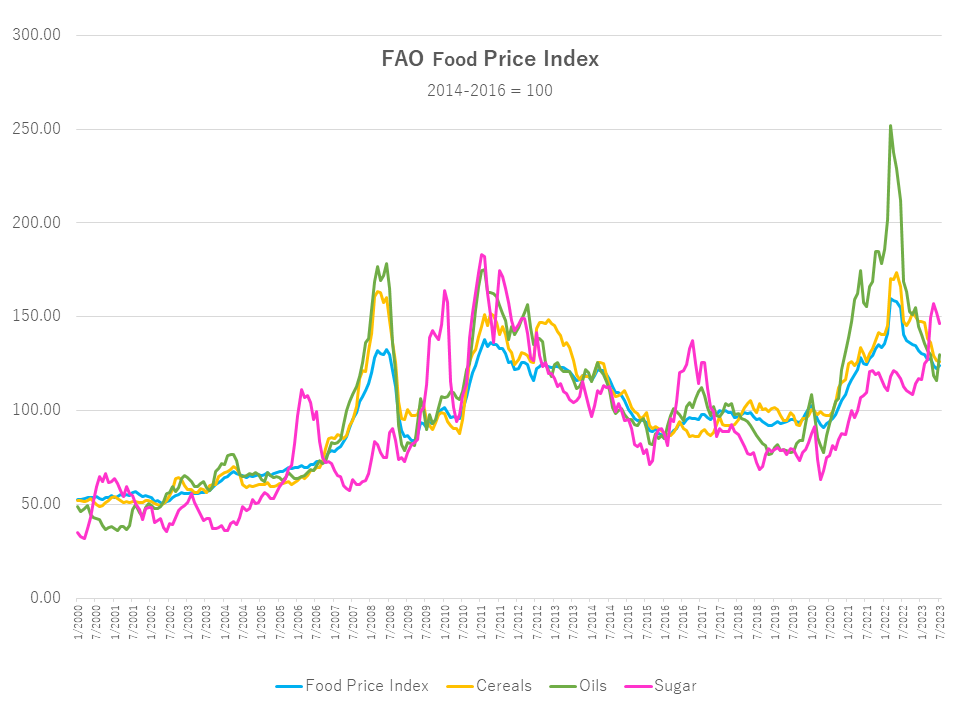Pick Up
835. July 2023 World Food Price Index

835. July 2023 World Food Price Index
The Food and Agriculture Organization of the United Nations (FAO) released its World Food Price Index on August 4. The index averaged 123.9 points in July 2023, up 1.5 points (1.3%) from the previous month, but 16.6 points (11.8%) below the level of the same month last year. Vegetable oil prices rose sharply in July, offset by a sharp decline in sugar prices.
Vegetable oil prices rose sharply, offsetting a significant decline in sugar prices over the same period. The Vegetable Oil Price Index had been declining for seven consecutive months, but in July it rose sharply by 12.1%. Sunflower oil in particular experienced a 15% increase, triggered by Russia's withdrawal from the Black Sea Grains Initiative on July 17, which added to existing uncertainties. The initiative and the memorandum between the UN and Russia have been critical lifelines for millions of people facing food security crises.
The Cereal Price Index decreased by 0.5% to 125.9 in July from the previous month. This decrease was influenced by seasonal increases in corn supplies from Argentina and Brazil, as well as better than expected crop forecasts in the United States. However, wheat prices rose 1.6% from the previous month to a nine-month high due to uncertainties surrounding exports from Ukraine and drought conditions in North America. Rice prices also rose 2.8% in July, mainly due to export restrictions in India, bringing the total year to date increase to nearly 20%.
Sugar prices were still 29.6% higher than a year ago, despite a 4% decline from the previous month. Factors such as the progress of the Brazilian harvest, rainfall in the Indian growing areas and lower demand in major importers such as Indonesia and China contributed to the decline. However, the impact of El Niño on cane production in Thailand and the trend of higher crude oil prices limited the decline in world sugar prices.
Events in July, including Russia's withdrawal from the Black Sea Grains Initiative and India's restrictions on rice exports, increased uncertainty in the global food market. According to the World Bank, wheat futures prices jumped 3% at one point following Russia's withdrawal from the grain agreement, and corn and soybean futures prices also reacted. Since then, grain markets have remained relatively stable in July, but food security concerns remain.
Contributor: IIYAMA Miyuki (Information Program)
